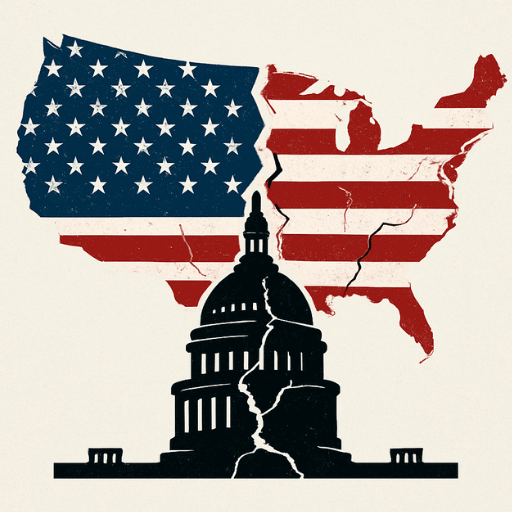Contempt for the Courts: The Hidden Danger in the “One Big Beautiful Bill”
Buried deep inside the 1,000+ pages of the One Big Beautiful Bill Act is a short clause that should send a chill down the spine of anyone who cares about the rule of law. Section 70302 doesn’t headline the evening news or trend on social media. But it should.
Because it effectively tells federal courts: your orders don’t matter unless someone paid for them to matter.
What the Section Says
Section 70302 prohibits federal funds from being used to enforce a contempt citation against anyone who violates an injunction or temporary restraining order if the person or group who obtained the injunction didn’t post a security bond when the order was issued.
It applies retroactively and prospectively. Whether the injunction is about stopping environmental destruction, blocking a policy that violates civil rights, or halting an abuse of power, it doesn’t matter. If the plaintiff didn’t put up money, the violator can ignore the court’s order without fear of contempt.
Why It’s Dangerous
On its face, it seems technical. But this is a seismic shift. Federal courts issue injunctions to stop government overreach, corporate misconduct, or unlawful policies. Contempt of court is what gives those orders teeth. If someone ignores the court, the judge can issue a citation and enforce consequences.
Section 70302 neuters that power.
Let’s say the federal government starts rounding up protestors unlawfully. Civil rights groups race to court and win a temporary restraining order. Normally, if ICE or local law enforcement violate it, they face contempt charges. But under OBBA, unless the civil rights lawyers posted a bond? No contempt. No enforcement. No accountability.
Now flip the script.
Let’s say a Republican-majority court issues an injunction against an executive action on abortion access or environmental regulation. The Democratic administration quietly ignores it. Same deal. No contempt citation can be enforced, unless someone posted a bond when the order was issued. The power of the court becomes optional.
This Isn’t Just Bad Law It’s an Authoritarian Cheat Code
This isn’t about liberal vs. conservative. It’s about raw power. Section 70302 gives future presidents, governors, agency heads, even military commanders, a new tool to sidestep the courts. If they know an order was issued without a bond, they can violate it, knowing enforcement is hamstrung.
And let’s be clear: poor plaintiffs, nonprofits, civil rights groups, and public defenders are the most likely to file injunctions without bonds. Wealthy corporations and political actors will simply factor the cost of a bond into their litigation budgets. This provision doesn’t level the field. It tilts it.
Why It’s in the One Big Beautiful Bill
This didn’t land in the bill by accident. Someone wanted this. And given how broad and sweeping OBBA is, it’s possible neither party fully considered the implications. But once it’s law, it becomes a weapon waiting to be picked up.
Imagine a future president, Democrat or Republican, deciding they’ve had enough of pesky court orders. With Section 70302 in place, all they have to do is verify whether the injunction came with a bond. If not? Ignore it. The judge can fume all they want. Enforcement is off the table.
The Bottom Line
Section 70302 doesn’t just clip the wings of the judiciary, it opens the door to lawlessness. It tells future officials: if no one paid to stop you, go ahead.
This is a bipartisan threat. It should be stripped from the bill before it becomes a blueprint for defying court orders on everything from reproductive rights to surveillance, elections, climate policy, immigration, or worse.
The courts are already under pressure. They don’t need Congress handing violators a free pass to ignore them.






